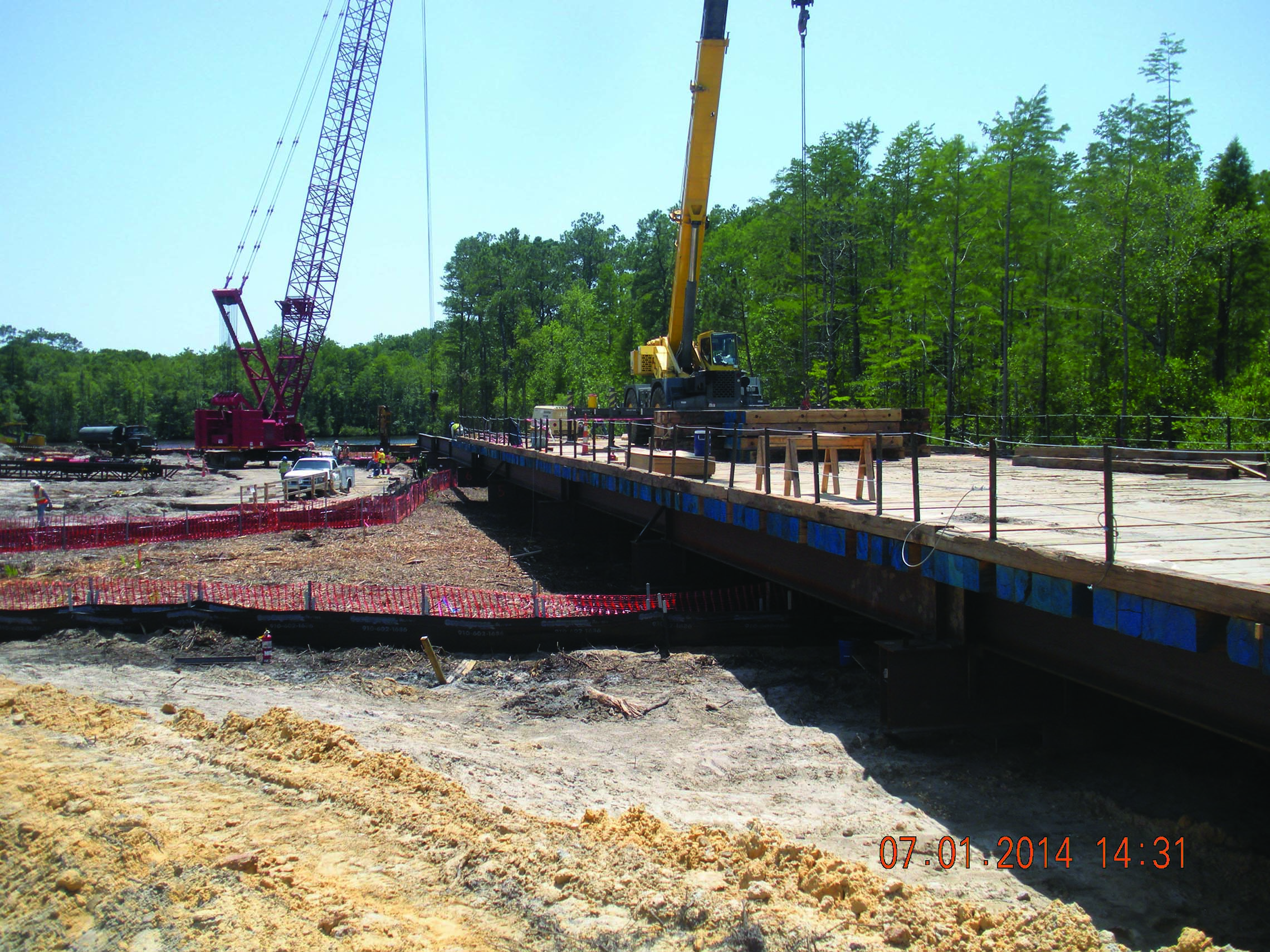Project News
Flatiron’s Southeast team tackles new Carolina Bays Extension

 Flatiron is constructing a new extension of Carolina Bays Parkway, also known as South Carolina Route 31. The 7.5-mile-long project runs from SC Route 544 to SC Route 707. It is the third phase of the Carolina Bays Parkway Project; Flatiron built the first phase back in 2002.
Flatiron is constructing a new extension of Carolina Bays Parkway, also known as South Carolina Route 31. The 7.5-mile-long project runs from SC Route 544 to SC Route 707. It is the third phase of the Carolina Bays Parkway Project; Flatiron built the first phase back in 2002.
The new six-lane freeway is being built on previously undeveloped land. One of the major obstacles in the first stage of construction is logging and clearing the dense Carolina forest to prepare for construction.
“It’s a pretty wooded area. We’re using what’s classified as a mower here in South Carolina, but it takes down 40-foot trees, reducing them to mulch,” said project manager Tom Warren.
Clearing is no small task—crews are expected to clear 117 acres of forest over several months—but the most time-intensive work will be construction of a bridge over the Atlantic Intracoastal Waterway at the north end of the project. The 3,600-foot-long precast, prestressed concrete girder/plate girder steel bridge represents 75 percent of Flatiron’s self-performed work on the project.
“We’ve started on the Intracoastal Waterway Bridge, driving casing, drill shafts and columns. To date, we’ve installed 27 drilled shafts and 13 spans of trestle,” said Tom. “We’ll be on the bridge for a year.”
The team will also build a 220-foot-long precast, prestressed concrete girder bridge, a 148-foot-long, single-span plate girder steel bridge at SC Route 707 interchange and two twin 120-foot-long concrete slab bridges over wetlands.
“The primary challenge for this particular job is wetlands,” said Tom. “All of our bridge construction that goes through wetlands, including the slab bridges and half of the intercoastal bridge, will be on trestles.”
Crews are also facing a few other environmental challenges on the project.
“There is an invasive species down here that we cannot remove from the site,” explained Tom. “It’s called Tropical Soda Apple. It was imported to South Carolina for slope stabilization. But it took off like wildfire and is now highly controlled. We cannot remove the dirt because it may contain seeds from this plant.”
The project has a wash station dedicated to pressure washing trucks and other equipment as they leave the site.
“It’s detrimental to livestock if they eat it, which is why containing it is so important,” said assistant project manager Lou Hutcherson, who joined Flatiron in May. “There are a lot of environmental concerns on this job.”
In addition to the invasive species and wetlands habitat, crews are also contending with a moratorium on sturgeon from January to April, when they can’t be in the intercoastal waterway.
“Luckily the copperheads, the rattlesnakes, and water moccasins are not endangered here,” said Tom. “But we have seen them! They are here!”
Approximately 20 Flatiron employees are on the project now, and according to Tom, it’s a good mix of Flatiron veterans and new faces. Tom rejoined Flatiron in October, having previously worked for Flatiron on the Carquinez Bridge project.
Once complete, the project will provide a new, high-speed route for travel in the area, relieving congestion along other nearby highways. The new roadway will also improve hurricane evacuation times.
“If you come to Myrtle Beach, it becomes clear pretty quick how much we need this road,” said Tom. “There are stoplights every half mile on the existing routes.”
The project is scheduled for completion at the end of 2016.
